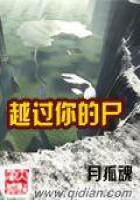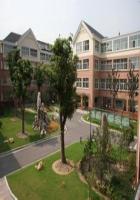We were near the end of the flat, and she began to fail. I had over-pressed her; the pace was too tremendous. Her speed lessened to an ordinary fast gallop as she faced the gentle rise that led to the brow.
And now, behind me, once more I heard the sound of the hoofs of the roan. The tireless beast was coming up. By the time we reached the edge of the plateau he was quite near, not fifty yards behind, for I heard him whinny faintly.
Then began the descent. The morning star was setting, the east grew grey with light. Oh! could we get there before the dawn? Could we get there before the dawn? That is what my horse's hoofs beat out to me.
Now I could see the mass of the trees about the stead. And now I dashed into something, though until I was through it, I did not know that it was a line of men, for the faint light gleamed upon the spear of one of them who had been overthrown!
So it was no lie! The Kaffirs were there! As I thought it, a fresh horror filled my heart; perhaps their murdering work was already done and they were departing.
The minute of suspense--or was it but seconds?--seemed an eternity. But it ended at last. Now I was at the door in the high wall that enclosed the outbuildings at the back of the house, and there, by an inspiration, pulled up the mare--glad enough she was to stop, poor thing--for it occurred to me that if I rode to the front I should very probably be assegaied and of no further use. I tried the door, which was made of stout stinkwood planks. By design, or accident, it had been left unbolted. As I thrust it open Hans arrived with a rush, clinging to the roan with his face hidden in its mane. The beast pulled up by the side of the mare which it had been pursuing, and in the faint light I saw that an assegai was fixed in its flank.
Five seconds later we were in the yard and locking and barring the door behind us. Then, snatching the saddle-bags of ammunition from the horses, we left them standing there, and I ran for the back entrance of the house, bidding Hans rouse the natives, who slept in the outbuildings, and follow with them. If any one of them showed signs of treachery he was to shoot him at once. I remember that as I went I tore the spear out of the stallion's flank and brought it away with me.
Now I was hammering upon the back door of the house, which I could not open. After a pause that seemed long, a window was thrown wide, and a voice--it was Marie's--asked in frightened tones who was there.
"I, Allan Quatermain," I answered. "Open at once, Marie. You are in great danger; the Red Kaffirs are going to attack the house."
She flew to the door in her nightdress, and at length I was in the place.
"Thank God! you are still safe," I gasped. "Put on your clothes while I call Leblanc. No, stay, do you call him; I must wait here for Hans and your slaves."
Away she sped without a word, and presently Hans arrived, bringing with him eight frightened men, who as yet scarcely knew whether they slept or woke.
"Is that all?" I asked. "Then bar the door and follow me to the 'sitkammer', where the baas keeps his guns."
Just as we reached it, Leblanc entered, clad in his shirt and trousers, and was followed presently by Marie with a candle.
"What is it?" he asked.
I took the candle from Marie's hand, and set it on the floor close to the wall, lest it should prove a target for an assegai or a bullet.
Even in those days the Kaffirs had a few firearms, for the most part captured or stolen from white men. Then in a few words I told them all.
"And when did you learn all this?" asked Leblanc in French.
"At the Mission Station a little more than half an hour ago," I answered, looking at my watch.
"At the station a little more than half an hour ago! Peste! it is not possible. You dream or are drunken," he cried excitedly.
"All right, monsieur, we will argue afterwards," I answered. "Meanwhile the Kaffirs are here, for I rode through them; and if you want to save your life, stop talking and act. Marie, how many guns are there?"
"Four," she answered, "of my father's; two 'roers' and two smaller ones."
"And how many of these men"--and I pointed to the Kaffirs--"can shoot?"
"Three well and one badly, Allan."
"Good," I said. "Let them load the guns with 'loopers'"--that is, slugs, not bullets--"and let the rest stand in the passage with their assegais, in case the Quabies should try to force the back door."
Now, in this house there were in all but six windows, one to each sitting-room, one to each of the larger bedrooms, these four opening on to the veranda, and one at either end of the house, to give light and air to the two small bedrooms, which were approached through the larger bedrooms. At the back, fortunately, there were no windows, for the stead was but one room deep with passage running from the front to the back door, a distance of little over fifteen feet.
As soon as the guns were loaded I divided up the men, a man with a gun at each window. The right-hand sitting-room window I took myself with two guns, Marie coming with me to load, which, like all girls in that wild country, she could do well enough. So we arranged ourselves in a rough-and-ready fashion, and while we were doing it felt quite cheerful--that is, all except Monsieur Leblanc, who, I noticed, seemed very much disturbed.
I do not for one moment mean to suggest that he was afraid, as he might well have been, for he was an extremely brave and even rash man; but I think the knowledge that his drunken act had brought this terrible danger upon us all weighed on his mind. Also there may have been more; some subtle fore-knowledge of the approaching end to a life that, when all allowances were made, could scarcely be called well spent. At any rate he fidgeted at his window-place cursing beneath his breath, and soon, as I saw out of the corner of my eye, began to have recourse to his favourite bottle of peach brandy, which he fetched out of a cupboard.















